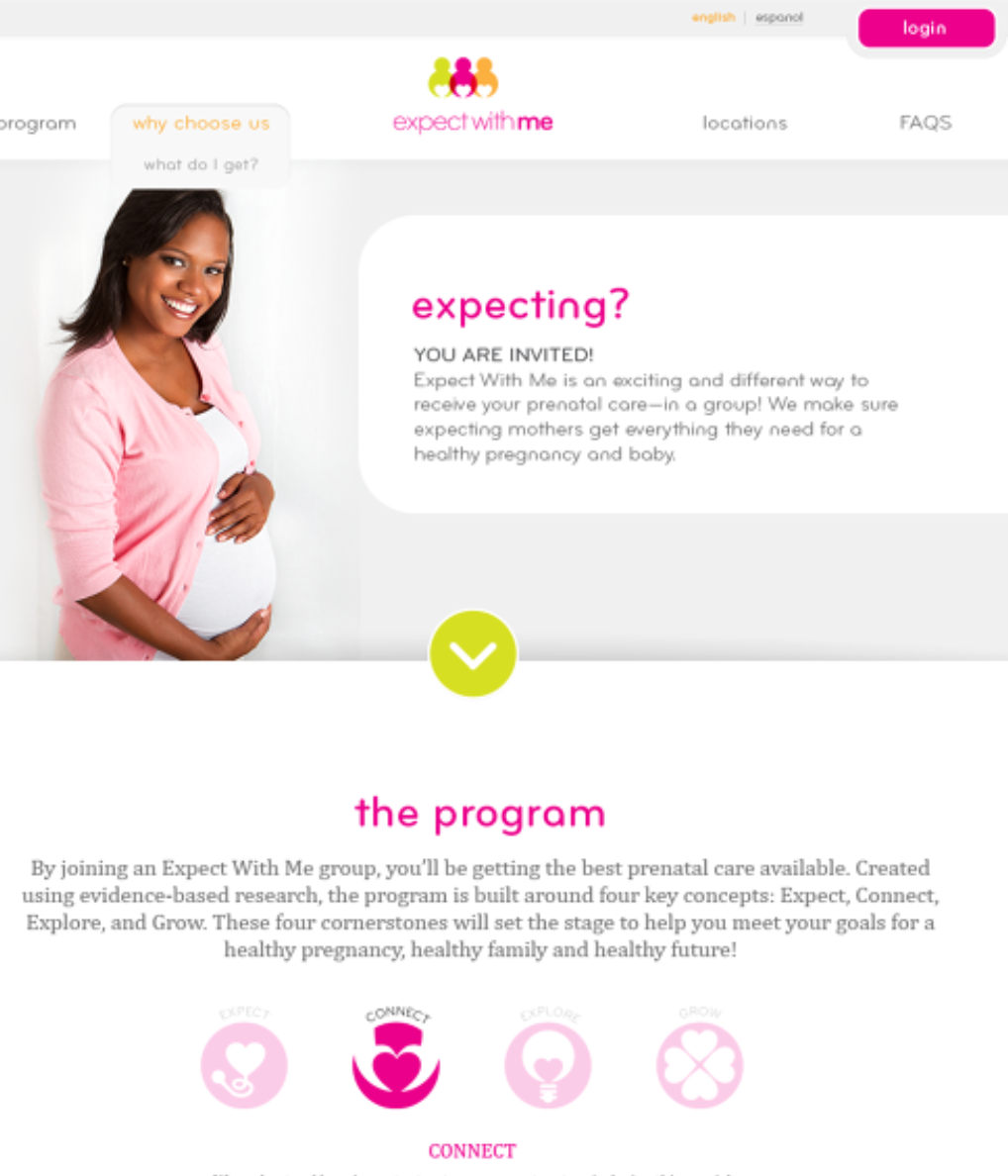Challenge
Imagine two women at the same hospital, each about to have their first child. Although they are similar in many ways: age, education, and income, one of these women is at increased risk for childbirth complications, including maternal and infant death.
What’s the difference between these moms-to-be? One is Black.
Maternal mortality rates among African American women are nearly 4 times higher than those experienced by non-Hispanic whites–42 deaths per 100,000 live births compared to 12 deaths per 100,000 live births, respectively[i]. Delivery-related hemorrhaging, pre-eclampsia, eclampsia, and complications related to cardiovascular disease account for most African American maternal deaths, with more than half occurring after delivery.
Nearly 60 percent of all maternal deaths are preventable, but African American women are more likely to experience a preventable pregnancy complication[ii]. These poor maternal outcomes and increased risks for African American women have remained largely unchanged for more than six decades. However, there are promising practices that should be further explored to help ensure these disparities do not continue to persist.
4
times higher mortality rate
42
deaths per 100,000 births
60
percent of deaths are preventable
Challenge
Imagine two women at the same hospital, each about to have their first child. Although they are similar in many ways: age, education, and income, one of these women is at increased risk for childbirth complications, including maternal and infant death.
What’s the difference between these moms-to-be? One is Black.
Maternal mortality rates among African American women are nearly 4 times higher than those experienced by non-Hispanic whites–42 deaths per 100,000 live births compared to 12 deaths per 100,000 live births, respectively[i]. Delivery-related hemorrhaging, pre-eclampsia, eclampsia, and complications related to cardiovascular disease account for most African American maternal deaths, with more than half occurring after delivery.
Nearly 60 percent of all maternal deaths are preventable, but African American women are more likely to experience a preventable pregnancy complication[ii]. These poor maternal outcomes and increased risks for African American women have remained largely unchanged for more than six decades. However, there are promising practices that should be further explored to help ensure these disparities do not continue to persist.
Strategy & Solutions
User Centered Design
To improve maternal health outcomes among African American women, structural, multi-leveled interventions that address the social determinants and barriers that drive pregnancy-related health outcomes must be used. According to research in this field, the most effective interventions would:
- Improve access to care
- Mitigate discrimination
- Increase health awareness
- Provide group support
- Use appropriate maternal data collection tools
User-centered, technology solutions offer low-cost, innovative opportunities to provide culturally-tailored, prenatal and postpartum care to high-risk women, particularly African Americans. One such solution is Expect With Me, an innovative, HIPAA-secured, fully integrated web-based platform that was designed by a transdisciplinary team of researchers at Yale University, representatives from UnitedHealth Group, and health care providers at Vanderbilt University Medical Center. This platform empowers women to take an active role in managing their health during pregnancy. Based on the principles of group care and human-centered design, Expect With Me is a smartphone-optimized and computer user-friendly platform designed to allow patients to 1) monitor their overall and pregnancy-related health metrics; 2) communicate with health providers 24/7; 3) interact with a social network of other expecting mothers, and; 4) access a library of user-friendly, healthcare related resources and educational materials.
Expect With Me — A HIPPA-secured, fully integrated web-based platform that was designed by a transdisciplinary team of researchers.
Transformation
Expect With Me
Preliminary findings from a multi-site, longitudinal study suggest strong promise for overall improvements to the healthcare system through enhanced quality of care, improved outcomes and lower service costs[i]. Although the initial Expect With Me preliminary data are limited to 1,000 patients, the model is designed to be nationally scalable.
Pilot testing the model in the southeast would provide an opportunity to explore how the technology could reduce poor maternal outcomes among African American women. The area is densely populated by the priority population, and it is disproportionately affected by regional disparities in the burden of severe maternal morbidity and mortality. Georgia has the highest rate of maternal mortality in the country, with a reported annual rate of 46.2 per 100,000 live births. The rates of pregnancy-related deaths in Georgia are approximately 26 percent higher than the national average.
It’s time to find a way to give more African American women the chance for healthy, uncomplicated births. An intervention like Expect With Me, which combines a high-touch point, high-tech strategy to increase positive patient and provider engagement in prenatal care for diverse African American populations could be an important step in the right direction. Further exploration is needed to inform future expansion of this approach as a viable, cost saving, and reproducible solution nationally.
.
[1] Creanga, A.A., Syverson, C., Seek, K., & Callaghan, W.M. (2017). Pregnancy-Related Mortality in the United States, 2011-2013.Obstetrics & Gynecology, 130(2), 366-373. Retrieved 4 April 2018
[1] Louis, J. M., Menard, M. K., & Gee, R. E. (2015). Racial and ethnic disparities in maternal morbidity and mortality. Obstetrics & Gynecology, 125(3), 690-694.
[1] Cunningham, S. D., Lewis, J. B., Thomas, J. L., Grilo, S. A., & Ickovics, J. R. (2017). Expect With Me: development and evaluation design for an innovative model of group prenatal care to improve perinatal outcomes. BMC pregnancy and childbirth, 17(1), 147. doi:10.1186/s12884-017-1327-3
xiv Hughson, J.P., Daly, Woodward-Kron, R., Hajek, J., Story, D. (2018). The Rise of Pregnancy Apps and the Implications for Culturally and Linguistically Diverse Women: Narrative Review. JMIR Mhealth Uhealth. 2018 Nov; 6(11): e189.
xvEllison, K., & Martin, N. (2017). Nearly Dying in Childbirth: Why Preventable Complications Are Growing in US. National Public Radio, December, 22. https://www.npr.org/2017/12/22/572298802/nearly-dying-in-childbirth-why-preventable-complications-are-growing-in-u-s




